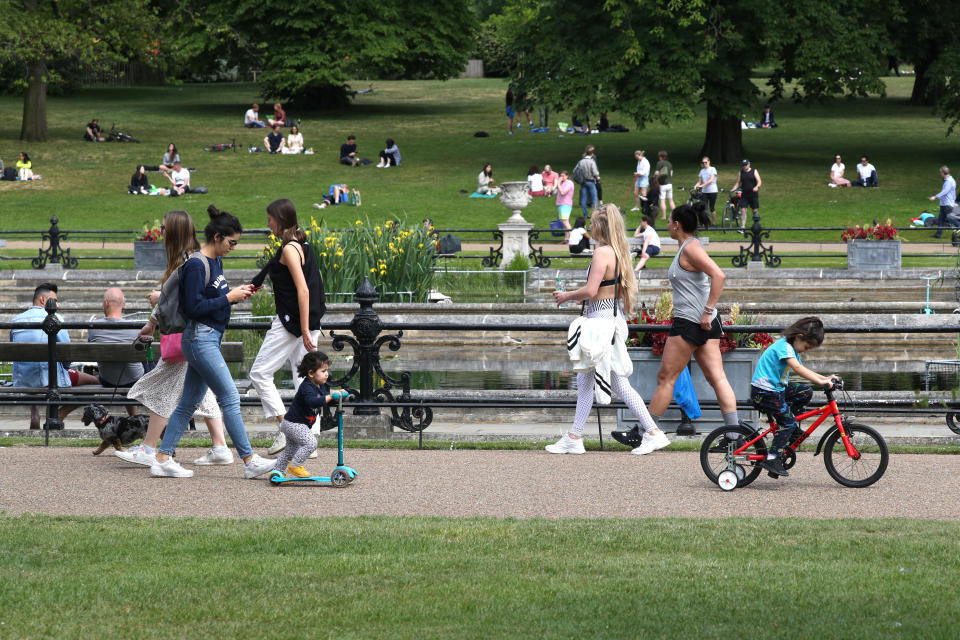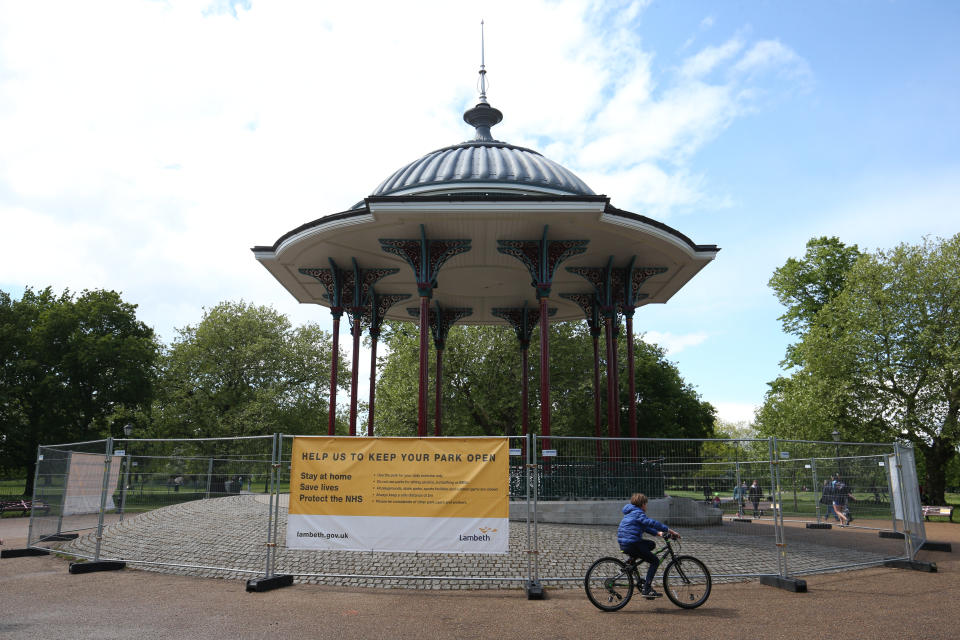People who live near parks should be taxed more to maintain their upkeep, thinktank warns

People who live in close proximity to parks should pay higher taxes for their upkeep, emulating the same system which exists in some US cities, a think tank says.
According to a Social Market Foundation (SMF) report, the NHS should also be given a role in maintaining parks, as they play a vital role in physical and mental health.
They suggest that homeowners with properties in close proximity to parks could pay a small tax to directly fund local authority parks.
The same system exists in some states in the US. For example, in Seattle’s King County, the rate is $7.20 per month for the owner of a home worth $500,000.
The study comes after ONS data revealed that only one in eight households has had no access to a garden during the coronavirus lockdown.
While more people are able to use public parks as coronavirus lockdown measures ease, the study found that the 27,000 urban green spaces in the UK are often poorly maintained.

The cross-party think tank says parks have been neglected under austerity of funding by cash-strapped councils and rely on community groups and National Lottery funding.
The national lockdown has sparked new debates about access to green space.
The Office for National Statistics (ONS) released data last week which shows that one in eight UK households has no garden.
Latest coronavirus news, updates and advice
Live: Follow all the latest updates from the UK and around the world
Fact-checker: The number of COVID-19 cases in your local area
6 charts and maps that explain how COVID-19 is spreading
The figures, based on data from Ordnance Survey and Natural England, show in London 21% of households have no access to private or shared gardens, although they are the most likely in the country to have a park nearby.
The average park in Great Britain serves just under 2,000 people, the ONS said, with some in densely-populated areas catering for many more.
For example, Clapham Common in London is the closest park for 46,000 people.
One in eight households (12%) in Great Britain has no access to a private or shared garden during the #coronavirus lockdown, according to our analysis of Ordnance Survey map data https://t.co/JApMhac8WG pic.twitter.com/60bHNsjB04
— Office for National Statistics (ONS) (@ONS) May 14, 2020
The SMF says that rather than councils managing parks and green spaces, NHS bodies “would be less likely to divert funding away”.
Giving the NHS the power and funding to maintain parks would allow more doctors to prescribe exercise, the report said.
Linus Pardoe of the SMF said: “If we acknowledge parks and green space as another means of delivering better health outcomes, should we not look to equip the NHS with the means to ensure the availability of parks?
"Providing – and funding – medicines, physical and talking therapies is a core function of the NHS, so why not parks?
“Maybe a health service that can provide new boilers can take a role in ensuring the availability of green spaces too.”
A poll of more than 2,000 people for countryside charity CPRE and the National Federation of Women’s Institutes (WI) last week revealed that almost two thirds of people think looking after and improving local parks and green space should be more of a priority after lockdown.
53% of those quizzed said they appreciate local parks more since social distancing measures were brought in, while 57% felt they were more aware of the importance of such green spaces to mental health and wellbeing.

 Yahoo News
Yahoo News 
